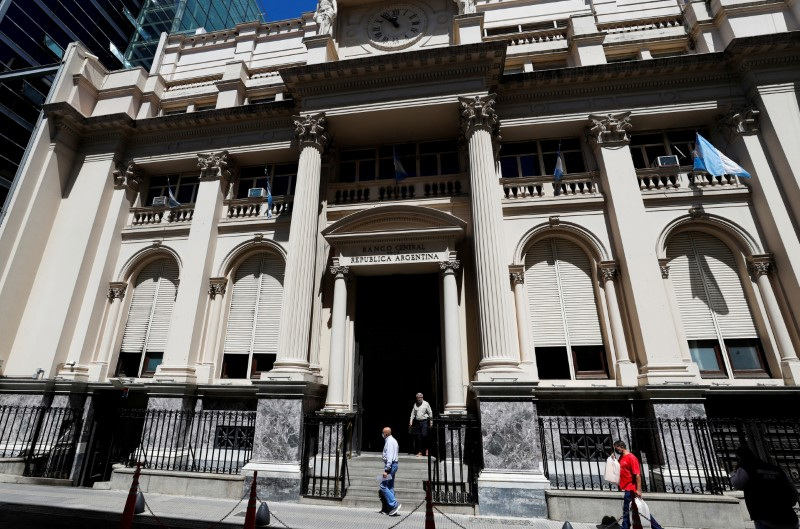By Jorge Otaola
BUENOS AIRES (Reuters) -Argentina's central bank (BCRA) decided to hold the benchmark interest rate steady at 118% during their last board meeting, despite the country's inflation rate hitting an over 30-year high in August.
August inflation data published on Wednesday showed annual inflation running at over 124%, with the monthly rate at 12.4%, its highest level since 1991, deepening a cost-of-living crisis ahead of the presidential elections scheduled for October.
Reuters reported the decision earlier on Thursday, with an official source saying the political cost of raising the key rate would be too high.
Argentina last month raised the benchmark interest rate to 118% from 97% after a shock open primary election in which radical libertarian Javier Milei got 30% of the vote, making him the favorite to win the presidential election in October.
Analysts have said the benchmark rate ought to be lifted to around 149% to curb price rises, with a central bank poll estimating inflation to end the year at around 169%.
Another source, however, said the bank hoped inflation in September would moderate a bit.
"August inflation was higher than expected, so September's will come lower than first anticipated ... according to all high-frequency indicators," the source said.
Analysts at J.P. Morgan said on Wednesday they expect double-digit monthly inflation through to the end of 2023, by which time they expect the annual figure to hit 190%.

The outcome of the uncertain Oct. 22 elections and repressed inflation created from price freezes could further exacerbate inflation, they added.
Argentina is facing a looming recession after drought disrupted its key farm sector, negative foreign currency reserves and a weak peso, while battling to salvage a $44 billion deal with the International Monetary Fund.